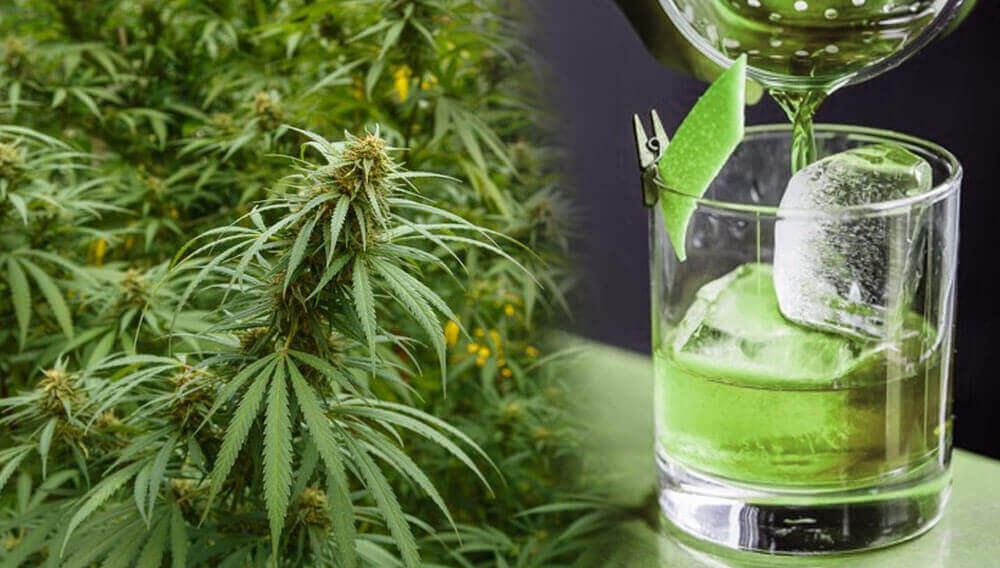GlobalData is the market leader in providing actionable insight into the cities around the world. With market analysts in 18 countries around the world, along with a team of researchers and consultants, we can provide you with the reliable, in-depth industry information you need.
Recreational marijuana is gradually being legalised across a number of countries worldwide — decriminalising cannabis in an attempt to generate new economic activity, not least in the tourism industry.
Uruguay, Canada, Portugal, the Netherlands, the US and lately Mexico are among the countries that have already or are planning to legalise the sale or cultivation of marijuana, though each of them is doing so for different reasons.
Marijuana tourism is a special type of tourism, in which the consumption of cannabis comprises a part or the total tourist experience; whereas the legal sale and consumption of marijuana may be a determinant factor behind the destination choice of a tourist, other travellers may visit a destination and consume marijuana as a secondary activity.
The most prominent example in the discussion surrounding the legalisation of recreational cannabis is the case of the Netherlands.
The country is home to the oldest so-called coffee shops in the world — a euphemism for pot bars — where the sale of cannabis for personal consumption is tolerated by the Dutch law.
Coffee shops traditionally played a vital role in Dutch tourism with many young travellers from the US and Europe organising trips to the Netherlands primarily for visiting such coffee shops.
Figures suggest that 25 percent to 30 percent of visitors to Amsterdam end up spending time in a coffee shop.
However, as more and more countries are planning to legalise marijuana – the US and Mexico in particular – the hype surrounding Dutch coffee shops is expected to fade, with the country’s tourism industry losing some of its competitive edge.
The vote of the Dutch parliament to permit cannabis cultivation by professionals in 2017 though, could prove beneficial for the country’s tourism industry as it is expected to make the running of coffee shops cheaper, safer and easier.
People will similarly enjoy lower prices and higher quality and variety – creating renewed impetus among cannabis tourists to visit Dutch cities.
Last year, Uruguay was the world’s first country to fully legalize the cultivation, sale and consumption of marijuana.
Yet, its sale is state-controlled: people have to register with the government in order to be allowed to purchase cannabis from pharmacies.
The price of cannabis is highly accessible, standing at $1.30 per gram, compared to $3 on the street.
Under these strict rules, it is clear that the scope of legalising marijuana in Uruguay was not to create Amsterdam or Colorado-style coffee shops and ultimately attract tourists, but to effectively tackle problems stemming from the powerful South American narcotic cartels.
Last week, the Mexican tourism secretary openly expressed his hopes of Mexico legalizing marijuana in major beach resorts such as Cancun and Los Cabos.
As a growing number of US states are legalising marijuana, the Mexican marijuana business – Mexico has traditionally been an exporter of marijuana to the US – is suffering greatly, urging cartels to seek profit in the production and sale of heroin and cocaine.
Such developments are driving protracted criminal violence, which ends up costing lives and threatening much more than just the tourism industry of the country.
North of the border, legalisation is becoming a trend; recreational marijuana is now legal in Washington, Oregon, California, Nevada, Alaska, Colorado, Massachusetts and Maine, while medical marijuana has been legalised in more than half of US states.
The marijuana industry in the US is a multi-billion-dollar one and one of the fastest growing in the country.
In particular, the legalisation of cannabis in Colorado created 18,005 full-time jobs, and generated about $2.4bn for the state’s economy.
The tourism industry also experienced a boost as the creation of coffee shops and marijuana tours draw many visitors to the state.
A study commissioned by the State of Colorado sowed that the legalisation of marijuana is a growing motivator for tourists choosing to travel to Colorado; 49 percent of respondents argued that the new cannabis law influenced their destination decision.
As more states legalise the recreational use of cannabis, tourist flows will be redistributed among such states.
Yet, there are substantial benefits to be accrued.
A report by the University of California Agricultural Issues Centre forecast that expenditure on cannabis in California following the decriminalisation of sale and recreational use may even reach the height of the expenditure on wine, which currently stands at $7.2bn.
A growing number of countries are currently debating the legalisation of marijuana as a means to increase tax revenues, generate new jobs and income and most importantly tackle drug violence – especially in Central and South America.
From a tourism perspective, the marijuana industry is creating a host of new opportunities for destinations to attract completely new target groups.
Yet, as more countries are proceeding with the legalisation of marijuana, the novelty effect of early-adopting destinations such as the Netherlands and Colorado is expected to wear off.
This is will urge players to reconsider their tourist offerings in order to effectively capitalise on this niche.
(788)





Leave A Reply